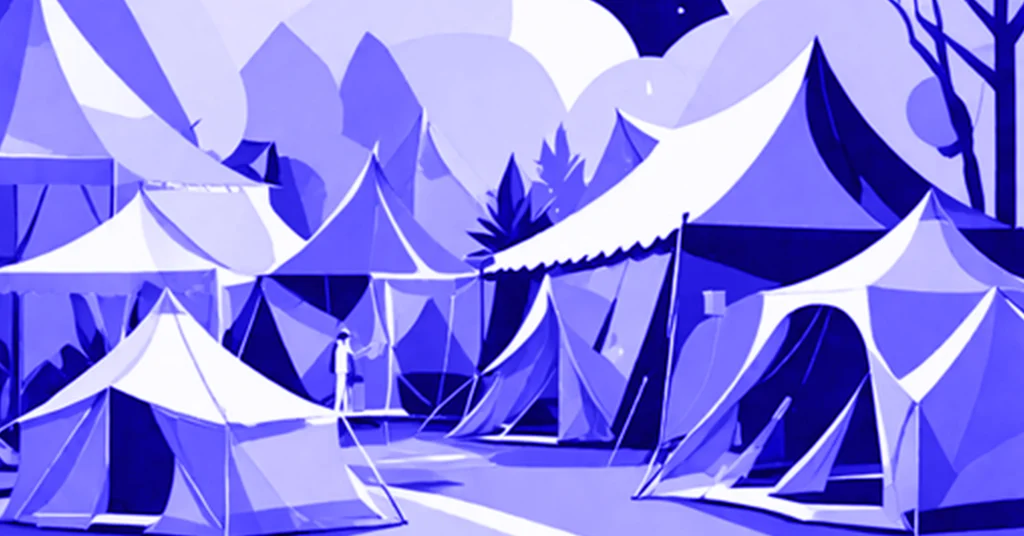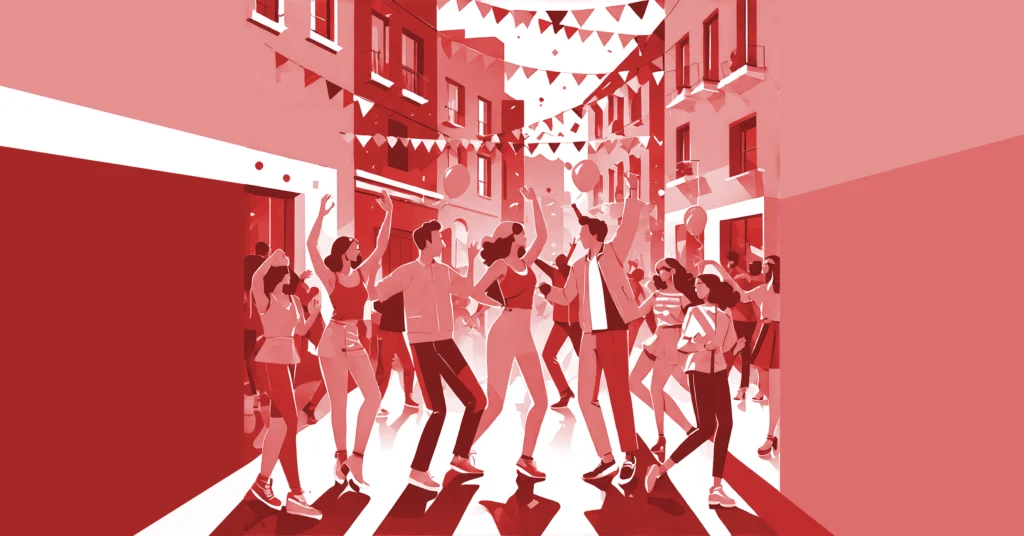Nature is calling, adventure awaits – are you planning your first camping trip or looking to improve your camping skills? Camping is a wonderful way to escape daily life and experience unforgettable moments under the open sky.
But to make sure your camping trip doesn’t turn into a nightmare and instead becomes a dream getaway, you’ll need the right tips and tricks. In this comprehensive guide, you’ll find everything you need to know for a successful camping experience – from the perfect gear to practical camping hacks.

Preparation is Everything
Spontaneity is nice, but when it comes to camping, good planning can make the difference between a relaxing vacation and a stressful one.
Pay Attention to Weather and Season
Checking the weather forecast is essential when camping. Check the forecast at least five days in advance, paying close attention to the chance of rain, wind speed, and daytime and nighttime temperatures. Always develop an emergency plan for storms.
Depending on the season, you’ll face different challenges. Spring brings changeable weather and pollen season can be tough for allergy sufferers. Summer comes with heat and lots of insects, while autumn is characterized by early darkness and heavy morning dew. Winter camping should only be attempted if you are an experienced camper.
Campground vs. Wild Camping
The choice between an organized campground and wild camping in nature depends on your needs and experience. Campgrounds offer restrooms, electricity, and a sense of safety from the community. You’ll also usually find shops nearby.
Wild camping, on the other hand, leaves you entirely on your own. You must check the legal regulations and respect nature reserves. Full self-sufficiency and the rule of leaving no trace make this type of camping more demanding, but also more authentic.
Finding the Perfect Tent
Your tent is your mobile home – you shouldn’t skimp here, but you also don’t need to go overboard.
Types of Tents at a Glance
Dome Tent:
- Ideal for beginners
- Quick setup
- Good wind stability
- For 1–4 people
Tunnel Tent:
- Lots of interior space
- Separate areas possible
- Requires guy lines
- Perfect for families
Geodesic Tent:
- Extremely stable in wind
- Self-supporting
- Higher price
- For alpine conditions
Important Tent Features
You shouldn’t compromise on waterproofing. A water column of at least 3,000 mm is recommended, and all seams should be sealed. The groundsheet must be made of waterproof material, and ventilation openings help prevent annoying condensation inside the tent.
Practical features make camping much more comfortable. A vestibule offers space for luggage and shoes, inner pockets keep small items handy, and hooks for camping lamps provide cozy light in the evening. Also look for colored guy lines – they’re more visible at night and help prevent tripping.
Camping Essentials
A well-thought-out packing list prevents unpleasant surprises at your destination.
Sleeping and Overnighting
Sleep System:
- Sleeping bag suitable for the season
- Sleeping pad for insulation and comfort
- Pillow or inflatable pillow
- Pajamas or comfortable clothing
Temperature Guide:
- Summer sleeping bag: 5°C to 15°C
- Three-season sleeping bag: -5°C to 10°C
- Winter sleeping bag: -15°C to 0°C
Cooking and Eating
Camping Kitchen:
- Gas stove with spare cartridge
- Lightweight pots and pans
- Dishes made of melamine or stainless steel
- Sharp knife and cutting board
- Cooler bag or cooler box
Food Tips:
- Prefer non-perishable foods
- One-pot meals are practical
- Refill spices into small containers
- Plan enough drinking water
- Snacks for in between
Hygiene and Health
Personal Care on the Go:
- Biodegradable soap
- Microfiber towels (quick-drying)
- Toothbrush and toothpaste
- Wet wipes for quick cleaning
- Toilet paper and small shovel
First Aid Basics:
- Bandages in various sizes
- Disinfectant
- Painkillers
- Personal medication
- Sunscreen and after-sun lotion
Choosing the Perfect Campsite
The right location determines the comfort and safety of your camp.
Terrain
The ideal campsite is a flat, dry area without stones or branches. A slightly elevated spot protects you from rainwater collecting in hollows. Also look for natural wind protection from bushes or rocks.
Certain places should definitely be avoided. Hollows can quickly turn into puddles in the rain, and under trees, falling branches, resin, or bird droppings can damage your tent. Exposed areas are vulnerable to wind, and anthills or insect nests can make for restless nights.
Practical Considerations
Think about the logistics around your campsite. The distance to water sources and restrooms should be convenient – not too far, but not too close due to noise. Parking options and waste disposal are also important factors.
Natural conditions greatly affect your comfort. Morning sunlight warms up the tent pleasantly, while shade during the midday heat is priceless. Observe wind direction and keep a respectful distance from neighboring campers.
Pitching the Tent Properly
A professional setup saves time and nerves – especially in bad weather.
Step-by-Step Instructions
Preparation:
- Clear the campsite of stones and branches
- Lay out a footprint (if available)
- Prepare and check all tent parts
- Keep instructions handy
Setup:
- Lay out and orient the tent floor
- Assemble poles (don’t force them!)
- Thread poles through the sleeves
- Raise the tent and give it shape
- Hammer stakes at a 45° angle
- Tension guy lines (not too tight!)
Pro Tips for Setup
In Wind:
- Weigh down the tent with luggage
- Secure the windward side first
- Ask someone for help
In Rain:
- Work as quickly as possible
- Set up the inner tent first (if possible)
- Keep doors closed until the end
Camping Etiquette and Sustainability
Respectful behavior toward nature and fellow campers makes camping better for everyone.
Consideration for Others
Noise:
- Observe quiet hours (usually 10 pm–7 am)
- Play music only at room volume
- Supervise children
- Keep conversations quiet
Space and Privacy:
- Keep enough distance from neighbors
- Don’t walk through other camps
- Avoid direct eye contact
- Hang laundry discreetly
Environmental Protection while Camping
Leave No Trace Principles:
- Take all waste with you
- Leave no traces behind
- Respect plants and animals
- Fires only in designated areas
Sustainable Camping Tips:
- Prefer reusable gear
- Use biodegradable cleaning products
- Buy local products
- Conserve water
Safety While Camping
Prevention is better than cure – especially in nature.
Weather Protection
During Thunderstorms:
- Stay away from metal
- Tent is usually safer than under trees
- Crouch down, don’t lie flat
- Turn off electronic devices
In Strong Winds:
- Add extra guy lines
- Use heavy objects as weights
- Watch wind direction
- Have an emergency plan
Wildlife and Insects
Precautions:
- Store food securely
- Always close the tent
- Avoid perfume and scented cosmetics
- Keep a flashlight handy
Encounters:
- Stay calm
- Retreat slowly
- Don’t feed or provoke
- Inform local rangers
Camping with Children
Camping with kids requires special planning but can be wonderful.
Child-Friendly Preparation
Gear for Kids:
- Their own small backpack
- Favorite stuffed animal
- Games for bad weather
- Extra warm clothing
Safety First:
- Reflective clothing
- GPS tracker or whistle
- Discuss clear rules
- Keep emergency contacts ready
Entertainment and Activities
Nature Experiences for Kids:
- Organize a scavenger hunt
- Observe plants and animals
- Campfire with stick bread
- Stargazing and storytelling
By the way: If you’re organizing a larger camping group or a family outing, digital invitation tools can be very helpful. Platforms like eventpage.ai offer special templates for outdoor events, making it easy to coordinate all participants.
Avoiding Common Camping Mistakes
Learning from mistakes is good – but you can avoid some altogether.
Typical Beginner Mistakes
Overpacking:
- Bringing too much clothing
- Carrying unnecessary gadgets
- Choosing heavy instead of light gear
- “What-if” mentality
Underestimating Nature:
- Ignoring weather changes
- Not bringing enough water
- Forgetting sun protection
- Neglecting insect repellent
Building Experience
Start Small:
- First night in your own backyard
- Short trips before long tours
- Choose a familiar area
- Join experienced campers
Conclusion: Camping is Pure Joy
Camping connects you with nature, slows down everyday life, and creates unforgettable memories. With the right preparation and gear, your camping adventure will become a true experience.
Remember: Perfection doesn’t exist in camping – every trip brings new experiences and lessons. The most important thing is that you have fun and enjoy your time in nature.
So pack your tent, grab your loved ones, and head off on your next outdoor adventure. Nature is waiting for you!











